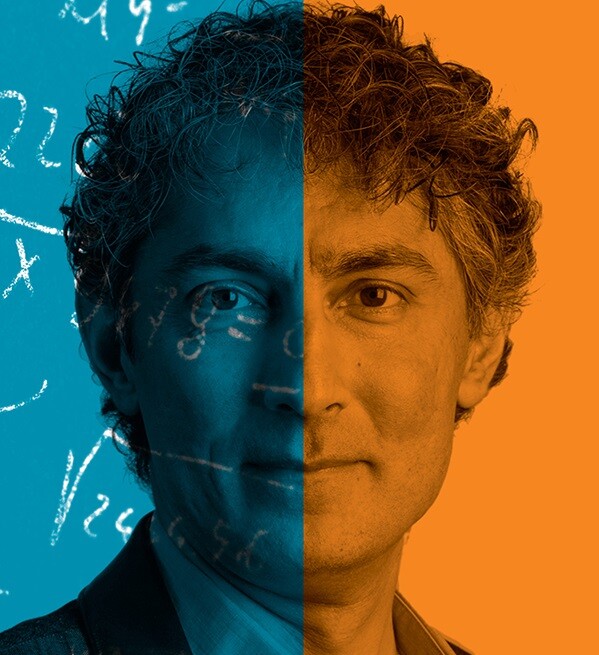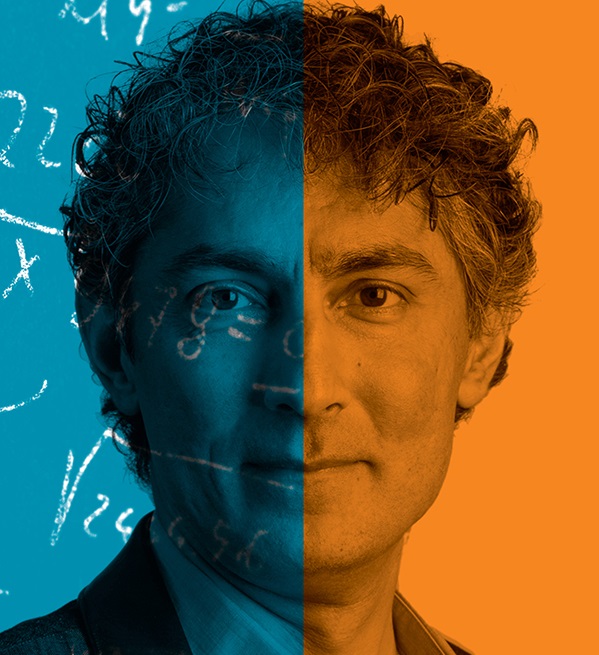Main Second Level Navigation
Breadcrumbs
- Home
- News & Events
- Recent News
- The Physician Playwright
The Physician Playwright

He always knew he wanted to be a doctor. But while immersed in the intensity of medical school at U of T, Dr. Arun Lakra discovered he also wanted — needed — to be a writer. Leading up to the Toronto premiere of his award-winning screenplay, Sequence, the Calgary-based ophthalmologist and author spoke with Faculty of Medicine writer Carolyn Morris about his dual professional career.

How do you manage to balance your careers as both a physician and writer?
On paper it looks like I’ve achieved balance, but I’m not so sure. I have three jobs — writer, doctor and dad — and I always feel like I’m neglecting something. I just try to keep the three balls in the air the best I can.
Before I was old and married with kids I used to carve long blocks of time to accomplish what I wanted. So I would work as a doctor for a while, and then take long stretches to immerse myself in writing. I still do that, but on a smaller scale. I divide my week and work three days as an ophthalmologist, and I carve out two days for writing. It doesn’t always happen, though. For instance, today is my writing day and I’m talking to you, and after this I’m off to my kid’s doctor’s appointment. And while I'm happy to do both, it is a bit of a juggling act.
You started your writing career in the throes of medical school — what drove you to do that?
I had always wanted to be a doctor — I was single-minded about that. But then, once I got to medical school and immersed myself in the hardcore science I started to feel this imbalance. So I did things like auditing a U of T course on the Italian Renaissance, meeting with the University’s writer-in-residence and entering a short story contest put on by the U of T Medical Society’s Arts and Letters club. When I won that twice, I took it as encouragement (even though I might have been the only one who entered!)
During my residency I decided to pursue writing more intensively — but kept it as a bit of a secret. I took writing classes and audited a screenwriting course at UCLA. And over the years I haven’t been able to shake it. I’ve just kept at it — writing Sequence, a book on laser eye surgery, a music album, a supernatural thriller screenplay. I’ve also recently written and directed a short film that premiered at the Montreal World Film Festival. If it weren’t for my creative career, I think I’d be a much crankier and less sane person.
You’ll be here in January for the Toronto premiere of Sequence, playing at Tarragon Theatre — what’s the play about?
I call it a science thriller. It’s a complex, woven tale that’s designed to resemble a double helix of DNA. On one side is a man who has successfully bet on the Super Bowl coin toss for twenty years. On the other is a genetics professor trying to cure a disease causing her to lose her vision, when she meets a student who’d gotten all 150 questions wrong on an exam. It’s about luck, science and coincidence. Hopefully it will leave the audience wondering how important order is — in our lives, or in the universe. But beyond the cerebral component — because not everyone will care for all the mental gymnastics — the story and characters are compelling. I hope!
You’ll also be speaking with medical students when you’re here. What do you say to students who have a passion for the arts?
I’ve been thinking a lot about this — especially as a father. It’s one thing if you have a passion to be a doctor or an engineer, but what about if your passion is high risk? What if your passion lies in the arts, or in athletics? There are a lot of talented, brilliant artists who are struggling financially — it’s not just a linear path to success. And when we talk about following our passion in life, we seem to be given just two options: either you go all-in and make a life of it, or you relegate it to a hobby. So we’re either over-engaging or under-committing.
I think there’s a middle ground, and I call it a subplot. We all have a plot in our lives, but why not invest in a subplot as well? Just take Star Wars — the main story would still work without R2-D2 and C-3PO, but it wouldn’t be nearly as great. In my life, despite sometimes feeling stretched, I do find that my writing makes me a better doctor and vice versa. I use that scientific brain cultivated in medical school for the structure, logic and planning that goes into my writing. And my creative work helps me think beyond the pressures of treatment and diagnosis and really relate to my patients on a human level. So I’m glad I’ve made writing much more than a hobby, and pursued it as a parallel career.
Dr. Arun Lakra, MD ’90 PGME ’95, is a Calgary-based ophthalmologist and award-winning writer. His play Sequence, directed by Andrea Donaldson, is running at the Tarragon Theatre from January 3 to February 12, 2017. (A pre-performance discussion with the playwright and director will be held prior to the January 13 performance organized by U of T’s Health Arts and Humanities Program.)
News


